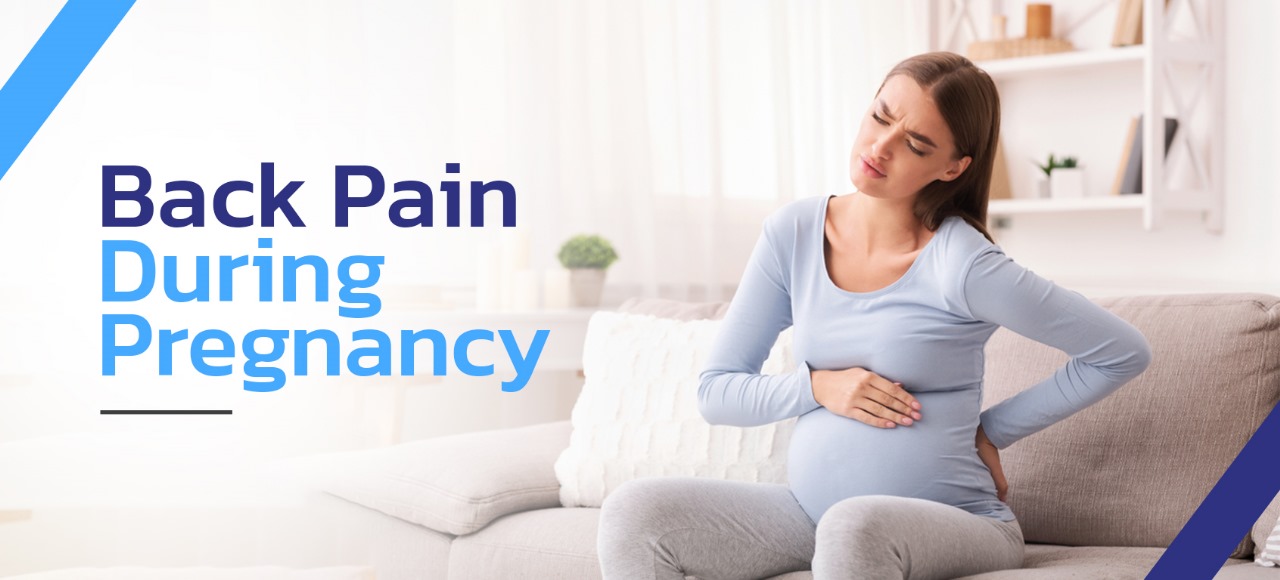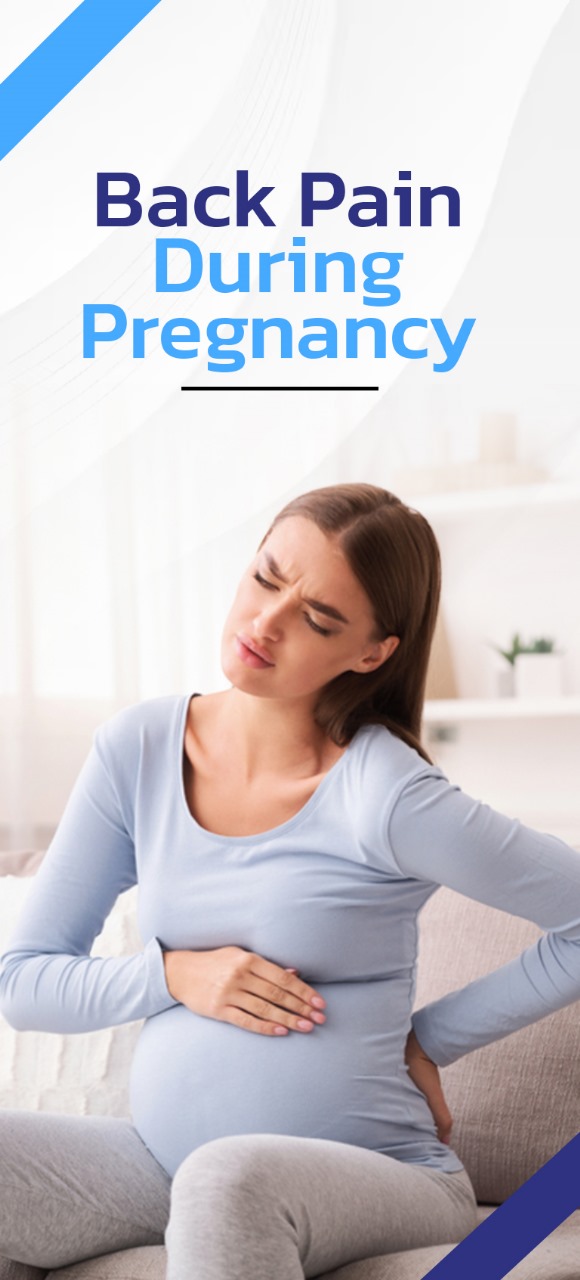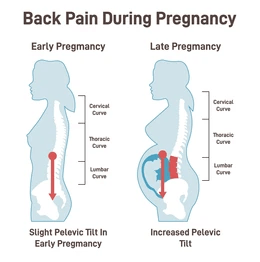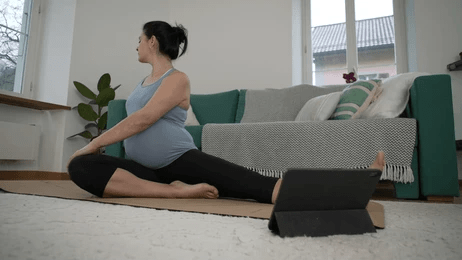

Back Pain During Pregnancy Causes, Relief & Prevention Tips
Experiencing back pain during pregnancy is a common concern among expectant mothers. This comprehensive guide explores the causes of [back pain during pregnancy], effective relief strategies, and essential prevention tips, ensuring a smoother pregnancy journey.
About Us

Dr Priyank M Patel, Spine Doctor in Thane , specializes in the surgical and non-surgical management of spine-related disorders, with a subspecialty in spine tumours. He is recognized as one of the youngest independent surgical consultants in India, empanelled in a leading tertiary hospital in Mumbai. Along with his fellowship at the prestigious Dr. Shekhar Y Bhojraj’s Spine Foundation, Dr. Patel has extensive international training from renowned spine institutions in complex surgical procedures. These include minimally invasive spinal surgery, computer-assisted spinal surgery, microsurgery, athletic spinal injuries, and motion-preserving procedures like artificial disc replacement.
Although surgery is his expertise, Dr. Patel strongly supports a conservative approach to managing spine disorders, including diffuse disc bulge treatment, whenever possible or required. He advocates for an active lifestyle with corrective exercise, and strength and conditioning coaching, especially for issues where surgeries should not be the primary line of treatment. Dr Patel has treated professional athletes from the Indian National Cricket Team and the film industry, enabling them to perform at their peak despite injuries. His command over his subject and skilled surgical expertise have made him a favourite in the international circuit. Dr. Patel has been invited to speak and present at World Congressional Meets on Spine and Related Disorders and is recognized as a senior consultant by various national and international spine organizations.

Causes of Back Pain During Pregnancy
Hormonal Changes and Ligament Relaxation
One of the primary causes of backache during pregnancy is hormonal shifts, particularly increased levels of relaxin, which loosen ligaments and joints, leading to instability in the back and pelvic regions.
Increased Weight and Postural Changes
As your baby grows, the added weight places extra strain on your spine and muscles. This strain, coupled with hormonal changes, often results in poor posture, which can exacerbate lower back pain during pregnancy and contribute to overall discomfort.
Stress on Pelvic Joints
The expanding uterus puts pressure on the pelvic joints and lower back, causing pain and discomfort, especially in the later stages of pregnancy. This stress on the pelvic region is a significant contributor to upper back pain during pregnancy as well.
Types of Pregnancy-Related Back Pain
Lower Back Pain
Perhaps the most common type, pregnancy-related lower back pain typically stems from the increasing curvature of the spine as your baby grows. It’s often characterized by a dull ache or sharp pain in the lower back area.
Sciatica
Pressure on the sciatic nerve due to the expanding uterus can lead to shooting pain down the legs, often described as severe back pain during pregnancy.
Posterior Pelvic Pain
Known as pelvic girdle pain, this condition involves discomfort in the back, hips, and thighs due to instability in the pelvic joints, affecting mobility during pregnancy.
Risk Factors for Developing Backache During Pregnancy
Previous Back Problems
A history of back issues increases susceptibility to back ache during gestation, as existing conditions may be exacerbated by the physical changes of pregnancy.
Multiple Pregnancies
Carrying twins or multiples intensifies strain on the spine and muscles, increasing the likelihood of experiencing back pain during pregnancy.
Sedentary Lifestyle
A lack of regular exercise weakens back muscles, making expectant mothers more prone to how to reduce back pain during pregnancy.
Tips for Preventing Pregnancy-Related Back Pain

Maintain Good Posture
Practicing proper posture helps alleviate strain on the spine. Use supportive cushions while sitting and avoid prolonged standing to reduce backaches during gestation.
Exercise and Strengthen Core Muscles
Engage in exercises approved by your healthcare provider to strengthen your core muscles, including your back and abdominal muscles. Prenatal yoga and swimming are excellent choices for improving flexibility and reducing exercise for back pain during pregnancy.
Use Proper Body Mechanics
When lifting objects, bend at the knees and keep the back straight to minimize strain. Sleep on a firm mattress with pillows supporting the back and abdomen for how to relieve severe back pain during pregnancy.
Managing and Alleviating backache during gestation

Safe Medications and Therapies
Consult with your healthcare provider before using medications for backache during gestation. Heat or cold packs applied to the affected area may offer temporary relief.
Prenatal Yoga and Stretching Exercises
Regular yoga sessions tailored for pregnancy can help alleviate muscle tension and improve flexibility, reducing backache during pregnancy discomfort. Stretching exercises focused on the back and pelvic area can also provide relief.
Supportive Devices like Maternity Belts
Maternity belts provide abdominal support, reducing strain on the lower back and offering relief from severe back pain during pregnancy.
When to Seek Medical Help
Signs of Serious Back Pain Issues
Persistent back discomfort throughout pregnancy, numbness, or difficulty walking should prompt immediate medical evaluation to rule out serious conditions.
Consulting a Healthcare Provider
Discuss any concerns or questions about back discomfort throughout pregnancy with your healthcare provider. They can offer personalized advice and recommend appropriate treatments for managing discomfort. For sever back pain , you can consult back pain specialist.
Conclusion
This comprehensive guide empowers expectant mothers with valuable insights into managing back pain during pregnancy, ensuring a more comfortable pregnancy journey. By understanding the causes and implementing effective strategies, you can prioritize your health and well-being while preparing for the arrival of your baby. For any type of Back Pain treatment in thane , meet Spine Specialist Doctor in thane Dr. Priyank Patel
Frequently Asked Questions
Back pain during pregnancy can be caused by several factors, including hormonal changes (increased relaxin levels), weight gain, and postural adjustments to accommodate the growing baby. These factors can strain the back muscles and spine, leading to discomfort.
Back pain during pregnancy is very common, with studies suggesting that up to 70% of pregnant women experience it at some point during their pregnancy, particularly in the later stages.
Common types of back pain during pregnancy include lower back pain, sciatica (pain radiating down the legs due to pressure on the sciatic nerve), and posterior pelvic pain (discomfort in the pelvic region due to joint instability).
Yes, risk factors for back pain during pregnancy include a history of back problems before pregnancy, carrying multiples (twins or more), and leading a sedentary lifestyle without regular exercise.
You can prevent or reduce back pain during pregnancy by maintaining good posture, engaging in prenatal exercises to strengthen core muscles, using proper body mechanics when lifting objects, and using supportive devices like maternity belts.
It’s essential to seek medical help if you experience persistent or severe back pain during pregnancy, numbness or tingling sensations in the legs, difficulty walking, or if your pain doesn’t improve with self-care measures.
Safe methods to manage back pain during pregnancy include using heat or cold packs on the affected area, practicing prenatal yoga or stretching exercises, and discussing safe medication options with your healthcare provider.
While back pain during pregnancy is uncomfortable for you, it typically does not directly harm your baby. However, managing your pain effectively can contribute to your overall well-being and comfort during pregnancy.
To sleep more comfortably with back pain during pregnancy, try sleeping on your side with pillows placed between your knees for support. Use additional pillows under your abdomen and behind your back to maintain a neutral spine position.
Lifestyle adjustments such as avoiding high heels, practicing relaxation techniques to reduce stress, and maintaining a healthy weight can help alleviate back pain during pregnancy and promote overall well-being.
